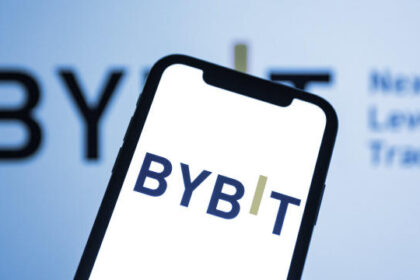Quantum computing stands at the forefront of cutting-edge technology, promising to revolutionize the way we process information and solve complex problems. At its core, quantum computing harnesses the principles of quantum mechanics, a branch of physics that describes the behavior of particles at the smallest scales, to perform computations at speeds unimaginable with classical computers.
The fundamental unit of classical computing, the bit, represents information as a binary digit, either a 0 or a 1. In contrast, quantum computing introduces the concept of quantum bits, or qubits, which can exist in multiple states simultaneously thanks to a phenomenon known as superposition. This means that a qubit can represent both 0 and 1 simultaneously, exponentially increasing the computational power of a quantum computer.
Additionally, qubits can exhibit another quantum phenomenon called entanglement, where the state of one qubit is intimately correlated with the state of another, even if they are physically separated. This enables quantum computers to process information in a highly parallel and interconnected manner, allowing for the exploration of vast numbers of possibilities simultaneously.
Quantum computing holds immense promise for solving complex problems that are currently intractable for classical computers. This includes optimization problems, cryptographic code-breaking, simulating molecular interactions for drug discovery, and even artificial intelligence and machine learning tasks. By leveraging the unique properties of quantum mechanics, quantum computers have the potential to unlock new frontiers in scientific research, technological innovation, and computational efficiency.
The advent of quantum computing has sparked both excitement and concern within the cryptocurrency community, particularly regarding its potential implications for the security of digital assets like Bitcoin. One of the most pressing concerns is the theoretical ability of quantum computers to crack open Bitcoin private keys, which are the cryptographic codes that grant ownership and control over Bitcoin funds. Understanding the nuances of this issue requires delving into the intricacies of quantum computing and its potential impact on cryptographic systems.
Bitcoin private keys are essentially large random numbers generated using cryptographic algorithms. These keys are used to create digital signatures that authenticate transactions on the Bitcoin network, ensuring that only the rightful owner of the funds can authorize transfers. The security of Bitcoin relies on the difficulty of deriving a private key from its corresponding public key or address, a process that is computationally infeasible for classical computers due to the sheer size of the keyspace.
However, quantum computing introduces a new paradigm that challenges the security assumptions of traditional cryptographic systems. Quantum computers leverage the principles of quantum mechanics to perform calculations at speeds exponentially faster than classical computers. One of the most well-known quantum algorithms with implications for cryptography is Shor’s algorithm, which can efficiently factor large integers and solve discrete logarithm problems, the foundation of many cryptographic schemes.
Shor’s algorithm has the potential to undermine the security of cryptographic algorithms like the Elliptic Curve Digital Signature Algorithm (ECDSA), which is used to generate Bitcoin private keys. By leveraging the quantum computing power provided by Shor’s algorithm, a sufficiently powerful quantum computer could theoretically derive a Bitcoin private key from its corresponding public key or address in a fraction of the time it would take a classical computer.
The length of a Bitcoin private key plays a crucial role in determining its resistance to quantum attacks. Currently, Bitcoin private keys are generated as 256-bit numbers, resulting in a keyspace of 2^256 possible combinations. While this keyspace is believed to provide sufficient security against brute-force attacks from classical computers, the emergence of practical quantum computers could significantly reduce the time required to crack a Bitcoin private key.
Despite these theoretical concerns, it’s important to note that the development of practical, scalable quantum computers capable of executing Shor’s algorithm remains a significant technical challenge. Building a fault-tolerant quantum computer capable of breaking cryptographic algorithms like ECDSA is still a distant prospect, and there are many technical hurdles to overcome before quantum computing poses a tangible threat to Bitcoin security.
Furthermore, the Bitcoin community and broader cryptocurrency ecosystem are actively exploring strategies to mitigate the potential impact of quantum computing on Bitcoin security. This includes researching and implementing quantum-resistant cryptographic techniques, upgrading Bitcoin’s protocol to enhance its quantum resilience, and advocating for proactive measures to safeguard the long-term security of Bitcoin and other cryptocurrencies against quantum threats.
In summary, while quantum computing presents theoretical risks to the security of Bitcoin private keys, the practical realization of these risks hinges on the development of practical, scalable quantum computers capable of executing Shor’s algorithm. As research and development in quantum computing continue to progress, the Bitcoin community remains vigilant and proactive in addressing potential vulnerabilities and ensuring the continued security and resilience of the Bitcoin network against emerging technologies and threats.












